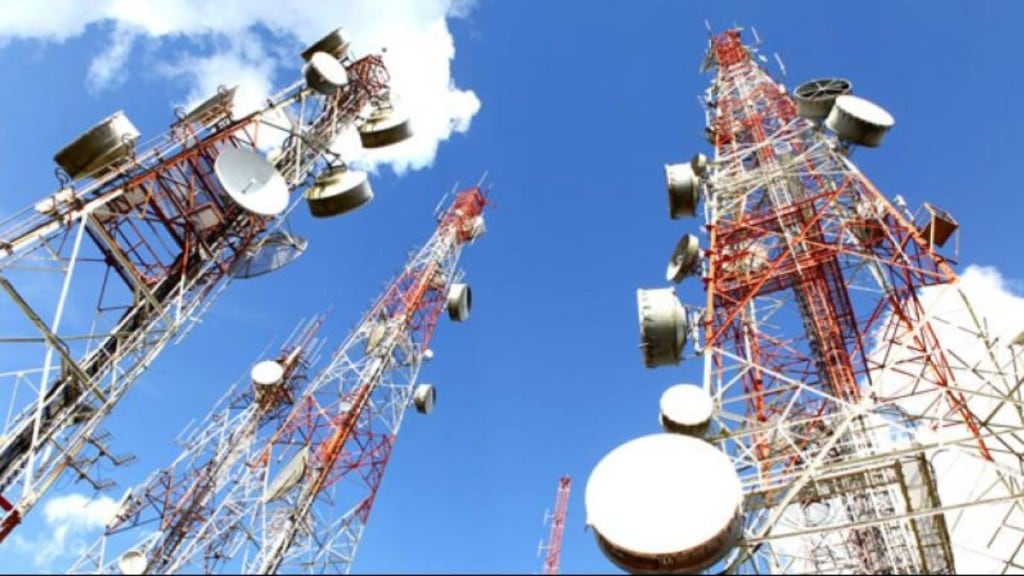Domestic telecom solutions providers like Reliance Jio, Tata Consultancy Services (TCS) and Tejas Networks are hopeful that the US Rip and Replace programme, and the deepening partnership with Washington in the technology sector will accelerate demand for their products.
The US Rip and Replace Programme is aimed at moving away from Chinese players like Huawei and ZTE, especially with regard to already installed 4G equipment in the US and replacing that with modern, fully functional equipment, which not only involve less capital expenditure, but are also responsive to changing business needs.
Apart from the bigger players, who will be able to find a market for their homegrown 4G and 5G stack, even smaller players like Lekha Wireless, Signalchip, Astrome, Resonous, BigCat Wireless will be able to export their radios, telecom backhaul technology, 4G base stations, among other solutions to the US market.
At the G20 summit, India and the US affirmed their commitment on building 5G and 6G technologies with the US President welcoming Indian companies for their support in the Rip and Replace Programme with regard to the pilot project initially.
Currently, Jio is working to commercialise its ‘made-in-India’ end-to-end 4G/5G stack and radio, whereas a TCS-led consortium, of which several local suppliers are also part, is currently deploying the BSNL 4G network through indigenous telecom stack and network equipment.
“These local suppliers have a full potential to replace Chinese equipment players. The opportunity not only exists in the US, but also Africa and other European nations,” said Rakesh Bhatnagar, director general of VoICE consortium, which represents companies such as TCS, Tejas, Lekha, Accord, Amantya, HFCL and other local suppliers.
Ramu Srinivasaiah, founder and CEO of Lekha Wireless, which provides connectivity solutions, said, “The US has a huge opportunity as there are many small telecom operators. We are ready with our 4G stack and exporting it to other countries. The next step for us is to take certification in the US.”
Lekha Wireless has a turnover of over `50 crore and is also one of the solutions provider in the BSNL 4G connectivity project.
While these companies are ready with their solutions, some of the concerns expressed by a few players are regarding scale, brand value appeal compared to Nokia and Ericsson as well as the Federal Communications Commission (FCC) certification in the US.
“We see a market opportunity of $1-10 million for us initially. We have a strong R&D focus with regard to 4G and 5G wireless solutions. Since this partnership has opened doors for MSMEs like us, we urge the government to help us by getting an assured market as well,” said Subbaiah KV, CEO & founder of Bengaluru-based Resonous Technologies. He also expressed concern over a higher FCC certification cost in the US compared to India.
Certification is essential for the companies with regard to security purpose as well as product compatability purpose. In India, Telecommunication Engineering Centre (TEC) certifies the solutions and equipment of companies.
Astrome, which is the world’s first point-to-multipoint wireless backhaul solutions provider in the 80 GHz band is looking at a $60-80 billion market opportunity. “We have our own software defined radios through which we can save 75-90% operational expenses of telecom service providers as well as up to 50% capex requirement for them,” said Kumaran Venkatesh, president of Astrome Technologies. The company is also in touch with Jio and Airtel to provide backhaul solutions.
In order to provide high-speeds in 5G and handle the load, telecom operators would require a backhaul of the network that carries the signal between the core site/network and the broadband sites. Since in absence of mass fiberisation of towers, a wireless backhaul using E-band spectrum is needed to provide higher speeds, experts said.
Parag Naik, CEO of Tejas-owned Saankhya Labs, said, “The company already has its three radios certified and is already selling to the US. We await more details from the government to understand the opportunity.”
Naik also flagged challenges with regard to setting up manufacturing base in the US for smaller companies, after-sales services like equipment maintenance requirements and financing requirement for local players who are small in size and scale.
Besides the Rip and Replace programme, India and the US have also signed a memorandum of understanding (MoU) between Bharat 6G Alliance and Next G Alliance, operated by Alliance for Telecommunications Industry Solutions, as a first step towards deepening public-private cooperation between vendors and operators. The two countries will also be setting-up two joint task forces focused on collaboration in the field of Open RAN (radio access network) and research and development in 5G/6G technologies.

